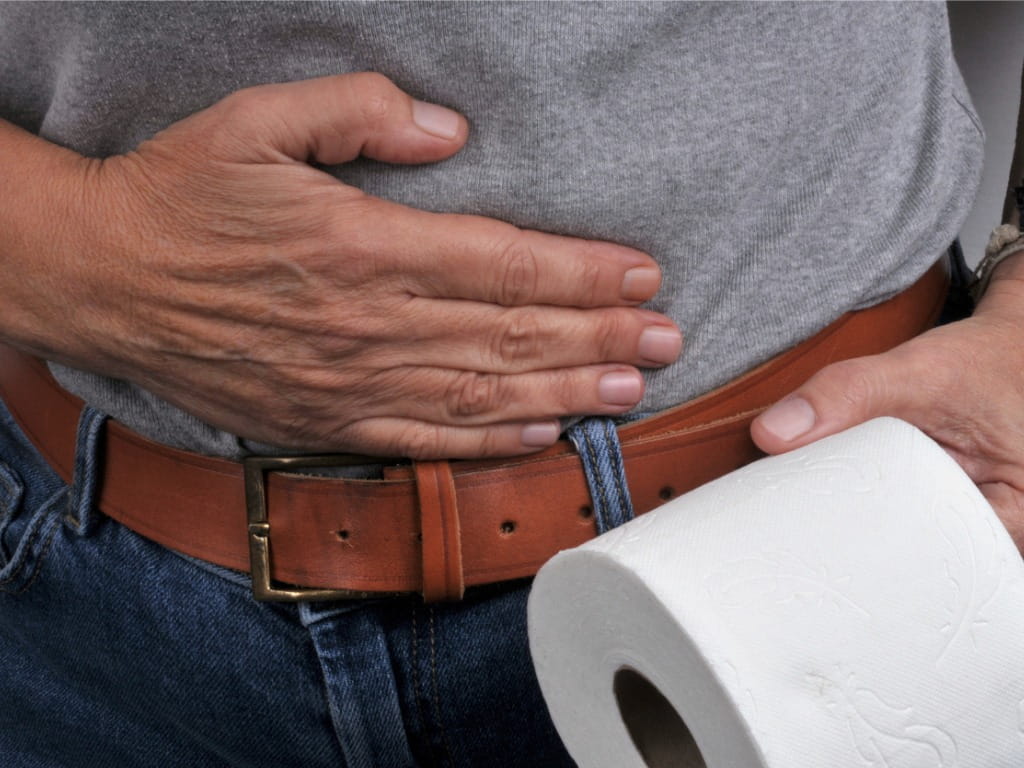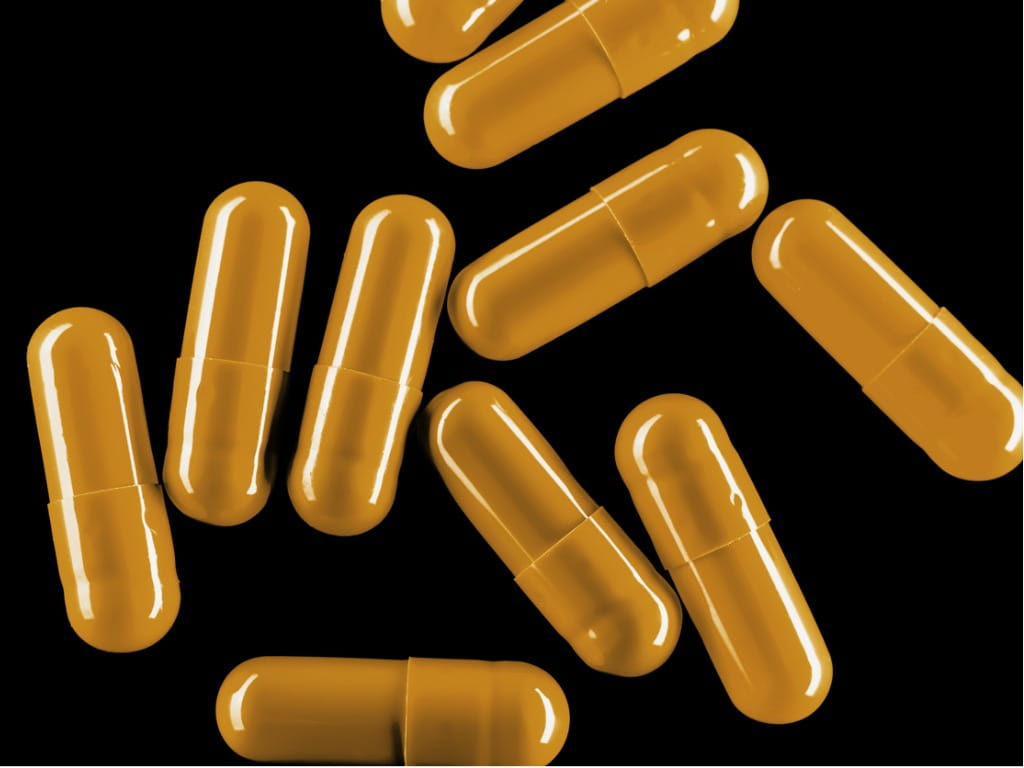What is a Fecal Transplant?

The Bottom Line
Fecal transplants involve the transfer of human feces from one individual to another. They may improve the gut microbiome and are used to treat or prevent diseases including recurrent Clostridium difficile infection and inflammatory bowel disease. Gastrointestinal side effects, including vomiting and diarrhea, are common side effects of fecal transplantation.

What is the gut microbiome?
The gut microbiome consists of trillions of microbes, mostly bacteria, that live in the human gut, especially in the large intestine. The bacterial composition of the gut microbiome is similar among most healthy adults, but genetics, diet, and environmental factors can affect the microbiome of an individual. The gut microbiome helps regulate our immunity, nutritional balance, and energy metabolism. Disruption of the gut microbiome is associated with obesity, inflammatory bowel diseases, cancer, and other disease processes.
What is Clostridium difficile?
Clostridium difficile, also known as C. diff, is a bacteria that causes diarrheal illness. C. diff is found throughout the environment and can affect both humans and animals. Advanced age, recent antibiotic use, and hospitalization are risk factors for C. diff infection in humans. The normal gut microbiome typically protects against C. diff, but infection can occur when the microbiome is disrupted as a result of antibiotics, hospitalization, or other factors. Watery diarrhea, fevers, and abdominal pain are some of the signs and symptoms of C. diff infection. C. diff infections are typically treated with antibiotics, but some individuals may develop severe or recurrent infections despite antibiotic use.
What is a fecal microbiota transplant?
Fecal microbiota transplantation involves the insertion of human feces obtained from a healthy donor into an individual’s digestive tract. Historically, fecal transplantation dates back to the fourth century in China, where the oral administration of human feces was used to treat individuals who suffered from severe diarrhea. In modern medicine, fecal microbiota transplants have been studied as a therapeutic option for certain diseases that are linked to disruption of the gut microbiome, including C. diff, inflammatory bowel diseases, and obesity.
How is a fecal transplant done?
Fecal transplantation can be performed via the rectum using a colonoscopy or enema to deliver the fecal matter, or orally by use of pills or a tube that carries the material from the nose to the digestive tract. Donated feces can be obtained from an individual known to the recipient or from a standardized stool bank. A stool bank is a facility that screens potential fecal donors, processes their stool and dispenses it to physicians and hospitals, and monitors the safety of the donation and transplantation. Stool banks carefully assess potential fecal donors and their stool samples for infection, inflammatory conditions that may affect the gut microbiome, and other factors that may limit the quality or effectiveness of donated feces. Overall, only a fraction of donated stool is generally accepted for transplantation.
Are fecal transplants safe?
Fecal microbiota transplantation is typically well-tolerated by most children and adults. Common side effects include abdominal pain, diarrhea, constipation, vomiting, and fevers. Although fecal transplant donors are carefully screened for infections and other conditions that might represent a health hazard to fecal transplant recipients, there is still a possibility of infectious transmission through fecal transplantation.
Does fecal transplant work for C. diff?
Antibiotics are the primary treatment for Clostridium difficile (C. diff) infection. Although the signs and symptoms of C. diff infection typically improve after antibiotic treatment, many individuals will experience recurrent episodes of infection. Antibiotics can be used to treat recurrent C. diff but also cause changes in the gut microbiome that may increase the risk of disease recurrence. Fecal microbiota transplantation has been studied as a way to improve the gut microbiome and potentially decrease the risk of C. diff recurrence. Through these mechanisms, fecal microbiota transplantation can cure nearly 90% of people affected by recurrent C. diff.
What are fecal transplant pills?
Fecal transplant pills contain donated feces that are enclosed in a capsule that can be swallowed by the fecal transplant recipient. The donor feces are initially filtered to remove solid material, and are then transferred into a specially designed capsule that resists breakdown by stomach acid after swallowing. This encapsulation also helps deliver the donor feces to the colon, where most gut bacteria live. In April 2023, the United States Food and Drug Administration (FDA) approved the first fecal transplant pill for use in humans. These FDA-approved fecal microbiota capsules, marketed as Vowst™, are used to prevent additional episodes of C. diff infection in people who have already experienced recurrent disease.
Is a DIY fecal transplant safe?
Do-It-Yourself (DIY) fecal transplants are generally performed in a home or other non-medical setting, and involve the administration of feces obtained from a friend or relative. DIY fecal transplants can be prepared with a blender and are commonly given through an enema. They are used to treat food allergies, small intestinal bacterial overgrowth (SIBO), and autism, but there is little evidence supporting the use of fecal transplants for those conditions. In one survey of people who had engaged in DIY fecal transplants, most individuals felt that DIY fecal transplants were helpful, although some did experience side effects such as fever, abdominal pain, and mood changes. Since DIY fecal transplants do not typically involve rigorous donor screening for communicable diseases like hepatitis and HIV, these procedures are not safe and may result in transmission of infectious diseases between individuals.
Can you use a fecal transplant for weight loss?
Since changes in gut bacteria are associated with obesity and metabolism, scientists have studied whether fecal microbiota transplantation can have beneficial effects on weight management. In one study, 44 obese adults who underwent fecal transplantation experienced transient improvements in glucose metabolism that lasted for several months. However, there were no long-term beneficial effects on glucose metabolism and insulin sensitivity. In another study involving obese children, fecal transplantation had no effect on weight loss. Although the results of currently available research studies do not prove that fecal transplantation is helpful for weight management, additional research on this topic is warranted to determine if fecal transplantation may have other beneficial effects for obese individuals.
What should I do if a fecal transplant pill makes me sick?
If unexpected or worrisome symptoms develop after taking fecal transplant pills, or if too much was taken, get guidance from Poison Control immediately. Help from Poison Control is available at www.poison.org and by phone at 1-800-222-1222. Both options are free, confidential, and available 24 hours a day.
Kelly Johnson-Arbor, MD
Medical Toxicologist
Poison Control Media Information
Did you find this page helpful? If so, we need your support. Poison Control is in constant competition with misinformation online. Links to www.poison.org or our webPOISONCONTROL triage tool from other websites and blogs help internet searchers quickly find accurate information and Poison Control’s contact information in an emergency. If you use the content from this page, please provide attribution via a link back to this page, www.poison.org, or https://triage.webpoisoncontrol.org/#!/exclusions. By doing so, you could save a life. Thank you!
Click here for Poison Control media contact information.
Suggested page citation (APA):
Johnson-Arbor, K. (n.d.). What is a Fecal Transplant?. Poison Control. https://www.poison.org/articles/what-is-a-fecal-transplant
Poisoned?
Call 1-800-222-1222 or
Prevention Tips
- Seek medical attention if you experience persistent diarrhea after taking antibiotics.
- Avoid consuming feces unless you are prescribed fecal transplantation by a physician.
- Talk to your doctor or pharmacist about any side effects that develop after a fecal microbiota transplant.
This Really Happened
Forty-three adult patients with recurrent C. diff infection were enrolled in a clinical study and provided one of three treatments: an oral fecal microbiota transplant, antibiotics, or antibiotics plus bowel irrigation. The study ended prematurely, after a majority of patients enrolled in the fecal microbial transplant group experienced clinical improvement while most of the patients in the other two groups failed to improve significantly. The most commonly reported side effects experienced by the patients who received fecal microbiota transplant included diarrhea, abdominal cramping, belching, and nausea (from van Nood, et al, 2013).For More Information
References
Wexler A. Mapping the Landscape of Do-it-Yourself Medicine. Citiz Sci. 2022;7(1):38.
Poisoned?
Call 1-800-222-1222 or
Prevention Tips
- Seek medical attention if you experience persistent diarrhea after taking antibiotics.
- Avoid consuming feces unless you are prescribed fecal transplantation by a physician.
- Talk to your doctor or pharmacist about any side effects that develop after a fecal microbiota transplant.
